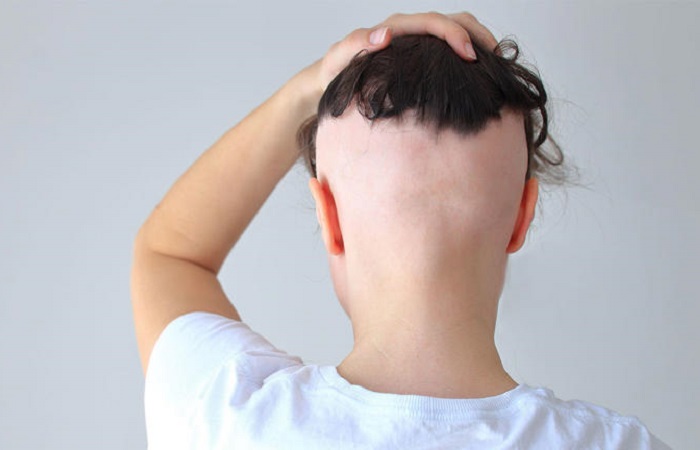A new analysis from the BRAVE-AA1 trial reveals that most patients with severe alopecia areata who achieved hair regrowth with baricitinib (Olumiant) lost their gains after stopping the medication. The findings suggest that continued treatment is needed to maintain results.
High Relapse Rates After Discontinuation
In the study, 80% of patients who stopped baricitinib (either 2 mg or 4 mg daily) experienced a worsening of more than 20 points on the Severity of Alopecia Tool (SALT) score by week 152. In contrast, only 7% of patients who stayed on the medication experienced similar loss of response. These results were reported by Dr. Brett King of Yale University School of Medicine and colleagues in JAMA Dermatology.
Retreatment Can Be Effective
Among those who relapsed and restarted baricitinib:
-
63% on the 2 mg dose regained a SALT score of 20 or less.
-
87.5% on the 4 mg dose achieved similar regrowth.
These findings suggest that baricitinib can still be effective after a pause, though response times may vary.
Continued Use Recommended
Based on these results, the authors do not recommend stopping treatment after one year of regrowth. They noted that clinical trials often require a treatment pause, but real-world decisions are based on factors like disease severity, remission depth, and patient stability.
“Discontinuation of treatment is dictated by clinical trial design, which is distinct from clinical practice,” the authors stated. “In practice, factors such as baseline severity or chronicity should guide decisions to taper, interrupt, or stop treatment.”
FDA Approval and Previous Findings
Baricitinib was approved by the FDA in June 2022 as the first systemic treatment for alopecia areata. Previous data from the BRAVE-AA1 and BRAVE-AA2 studies showed that:
-
Nearly 40% of patients achieved SALT ≤20 by week 52.
-
Nearly 30% reached SALT ≤10 with higher doses of the drug.
Who May Be Able to Stop Safely?
Dr. Shoshana Marmon of Valhalla Medical College said the study offers helpful insight into patient characteristics that may predict success after stopping treatment. According to her:
-
Patients with shorter episodes of alopecia areata,
-
Those without eyebrow or eyelash loss,
-
Those with no allergies or history of alopecia universalis,
were more likely to maintain hair regrowth after discontinuation. “Milder disease and shorter duration also correlated with better outcomes,” Marmon said.
Guidelines for Stopping Treatment
King and his team cited expert recommendations that systemic treatment should only be stopped after full hair regrowth has been maintained for at least six months or if the disease can be managed with topical therapies.
However, they noted that it is unclear how many patients in the study might have maintained regrowth if they had met these criteria before stopping baricitinib.
Patient Perspectives and Clinical Decisions
Dr. Cathryn Sibbald of the University of Toronto noted that most patients are reluctant to stop treatment due to fear of relapse. But for those who must stop—due to pregnancy, insurance issues, or other factors—this study offers guidance.
“These data suggest patients may lose hair for 6 to 12 months, but regrowth is likely if treatment restarts,” she said. For patients who want to stop but don’t have to, she recommended a very gradual taper and close monitoring.
JAK Inhibitors vs. Other Treatments
Dr. Rodney Sinclair highlighted that the near-universal relapse seen with JAK inhibitors like baricitinib differs from systemic steroids, where relapse occurs in only about 50% of cases. This suggests differences in drug durability and patient selection.
“Many of these patients had slower responses, so stopping early may have been premature,” Sinclair noted. “Unlike steroids, treatment discontinuation was abrupt. Future studies should explore how best to support patients during treatment pauses.”
Study Design and Patient Population
The BRAVE-AA1 phase III trial began in March 2019 and included 654 adults with severe alopecia areata (SALT ≥50) across 70 sites in three countries. Participants were randomized in a 3:2:2 ratio to receive:
-
Baricitinib 4 mg
-
Baricitinib 2 mg
-
Placebo
Participants had an average age of 37, and 58.6% were women. After 52 weeks, 154 responders (SALT ≤20) were re-randomized to continue their dose or switch to placebo. If a patient on placebo relapsed, they could resume their original baricitinib dose.
Relapse Timeline After Discontinuation
Loss of benefit occurred gradually:
-
0% at 4 weeks post-discontinuation
-
10–11% at 8 weeks
This shows that while relapse is likely, it does not happen immediately, providing a short window for clinical decisions.
Limitations of the Study
The authors acknowledged several limitations:
-
Delays in restarting treatment may have limited retreatment response.
-
A small but important number of patients may not respond to baricitinib again.
Future Directions: Predicting and Supporting Discontinuation
Dr. Arash Mostaghimi of Brigham and Women’s Hospital emphasized the need for predictive models. “One in five patients may be able to safely stop treatment. Knowing who they are would be invaluable,” he said.
He also suggested future real-world studies should focus on:
-
Identifying stable responders with SALT <5
-
Exploring the use of adjunct treatments like low-dose topical minoxidil to maintain results
Industry Involvement and Disclosures
Eli Lilly, the manufacturer of baricitinib, sponsored the study. Dr. Brett King reported personal fees from Eli Lilly, Sun, and Pfizer. His spouse has also worked with these companies. Other coauthors disclosed relationships with Eli Lilly and other pharmaceutical firms.
Dr. Shoshana Marmon reported no conflicts of interest.
Dr. Cathryn Sibbald disclosed honoraria from AbbVie, Novartis, Pfizer, UCB, LEO Pharma, and Sanofi.
Related Topics
- Este Medical Launches Robotic DHI In Birmingham
- Kanpur: Female Dentist Surrenders Over Hair Transplant Deaths
- Hair Transplant Horror: Kerala Man Infected By Flesh-Eating Bacteria


